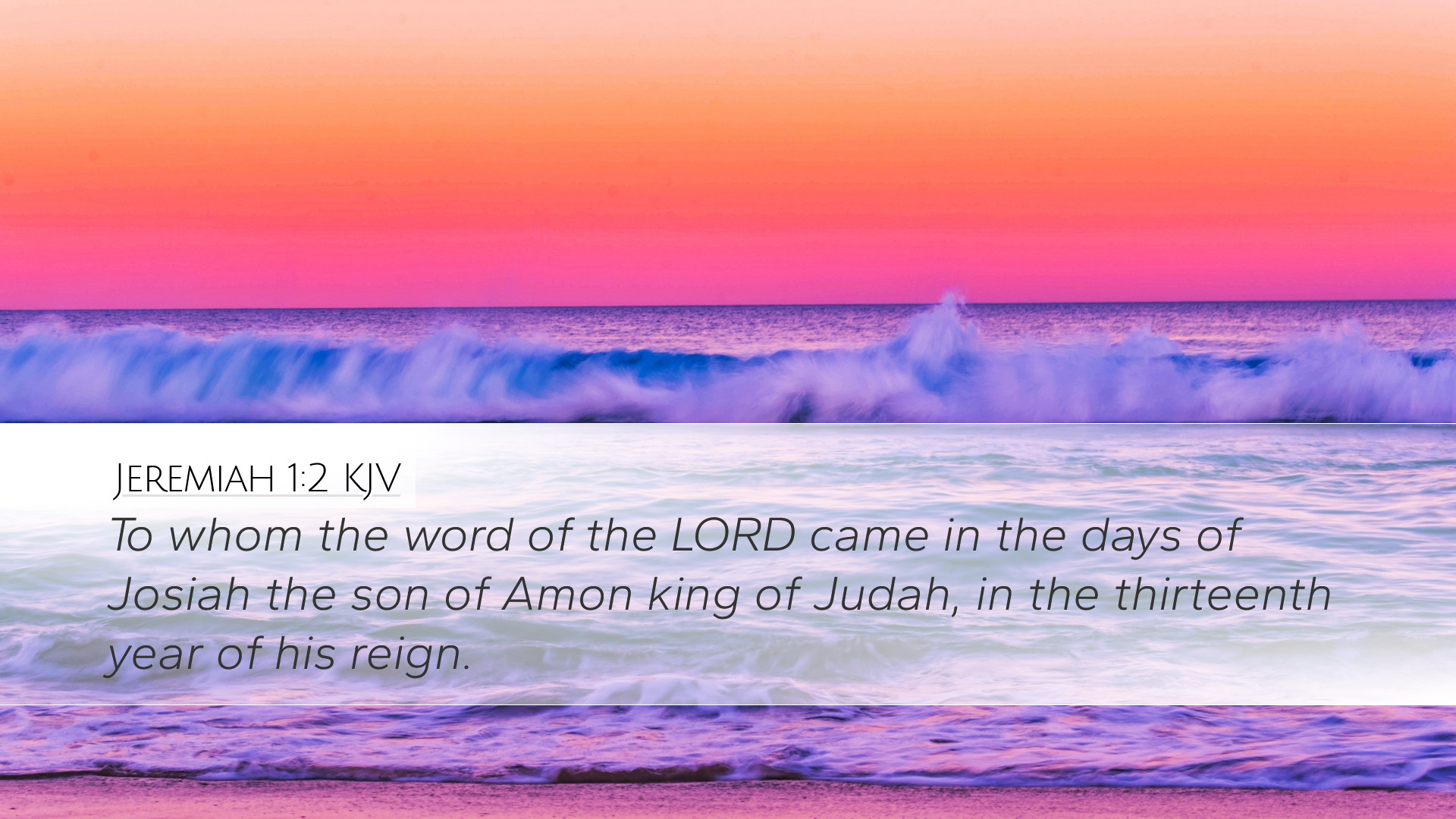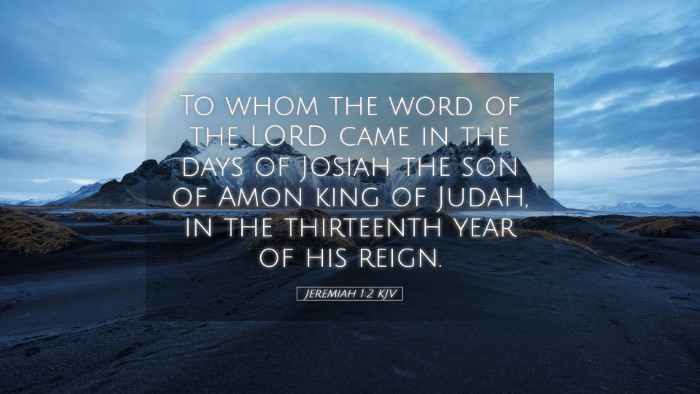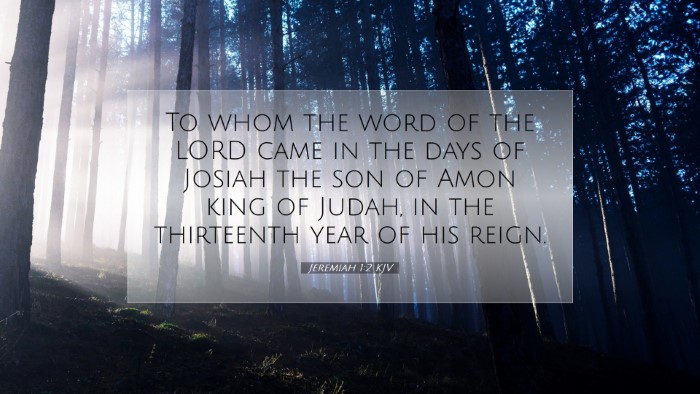Commentary on Jeremiah 1:2
Verse Context: Jeremiah 1:2 states, "To whom the word of the Lord came in the days of Josiah the son of Amon, king of Judah, in the thirteenth year of his reign." This passage introduces the prophetic ministry of Jeremiah and sets the historical context of his messages.
Historical Framework
Matthew Henry emphasizes the importance of understanding the period in which Jeremiah prophesied. The reign of Josiah was marked by significant religious reforms, a return to the worship of Yahweh, and a discovery of the Book of the Law. Jeremiah’s calling during this time indicates a divinely appointed mission to speak against the prevailing idolatry, despite the king's intentions toward righteousness.
Albert Barnes expounds that Josiah’s reign provided a backdrop of both hope and impending judgment. The discovery of the Law led to a brief revival, yet the spiritual decay had deep roots in the nation. Jeremiah's prophetic call was a response to the need for deeper repentance and genuine reform, as Josiah’s actions were not enough to turn the tide of coming judgment.
The Prophetic Call
Divine Communication: The phrase "the word of the Lord came" signifies the profound way in which God communicates His will to humanity. Adam Clarke notes that God’s word is often a reflection of His covenantal relationship with Israel. The emphasis on the word suggests a dynamic encounter between the divine and the prophet, indicating that Jeremiah's message was not self-originated but divinely mandated.
Imparted Authority
The calling of Jeremiah illustrates the concept of divine authority bestowed upon the prophet. Each commentator highlights that this authority is not merely for personal edification but serves to convey God’s judgment and plans for Israel. Matthew Henry asserts that the prophets are, in essence, God’s messengers, carrying the weight of His word to the people.
Timing and Relevance
Thirteenth Year of Reign: The specific mention of the thirteenth year of Josiah's reign is significant. Albert Barnes suggests that this timing is crucial; it signals the beginning of a major shift in Jeremiah's life and ministry. The thirteenth year corresponds to approximately 626 B.C., a time of great sociopolitical upheaval and spiritual challenge for Judah.
- Historical Significance: This was before Jeremiah encountered fierce opposition and the destruction of Jerusalem, highlighting a moment of prophetic beginning.
- Theological Implication: God's call during this specific time asserts that divine truth remains relevant to crises that nations face.
Implications for Ministry
Jeremiah’s example provides a powerful case study for contemporary ministry. Adam Clarke encourages modern-day prophets and leaders to recognize their own calling within the framework of God’s sovereignty over history. The emphasis on God's word reminds pastors and theologians of the necessity of Scripture as the foundation for faithfulness in ministry.
Conclusion
The reflections on Jeremiah 1:2 from various public domain commentaries converge on the themes of divine calling, the authority of God’s word, and the critical historical context of ministry. For pastors, students, theologians, and scholars, the insights derived from these commentators not only enrich understanding of Jeremiah's prophetic ministry but also challenge current leadership styles in embracing the call to speak God’s truth in an ever-changing world.
Call to Action
Lastly, this passage calls all believers to reflect on their own readiness to respond to God's word. Like Jeremiah, we are invited to engage with our contemporary contexts faithfully, ensuring that the message of Scripture resonates with the needs of our time.


